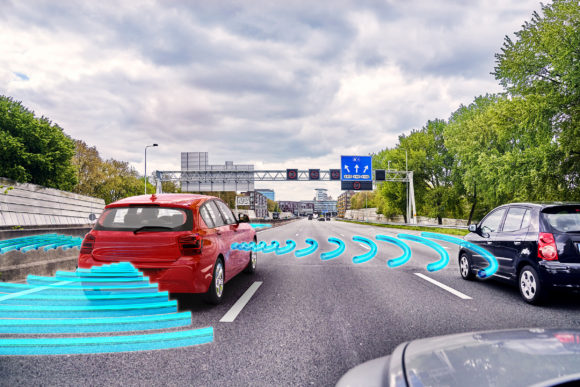A new legislative framework for autonomous vehicle testing and deployment in California created this year is expected to lead to a strong wave of development of this technology in the state.
In February 2018, the Office of Administrative Law passed the final version of the regulations. It allows the state Department of Motor Vehicles to start providing permits for both testing and deployment of driverless vehicles. The regulations set a new trajectory, which is different from what the state had taken back in 2015. Back then, it was seeking a more restrictive approach towards autonomous vehicles, but its approach has changed.
With the newly implemented regulations, holders of permits from the California DMV can test and deploy autonomous vehicles on certain California public roads. Currently, the number of permit holders is around 50.
The California autonomous vehicle testing program has four clear requirements that manufacturers must meet:
- The testing can be done only by the manufacturer;
- The testing can be conducted only by a licensed driver or remote controller hired by the manufacturer;
- The manufacturer must provide financial proof of $5 million;
- The manufacturer must present either a general or a driverless testing permit.
The regulations also set clear technical standards for the autonomous vehicles and their operation while being tested, as well as for their deployment. They define that the Federal Motor Vehicle Safety Standards apply fully.
The new law also creates a national precedent by setting a standard for the collection of personal information by driverless technologies. The autonomous vehicles will have to qualify in terms of cybersecurity measures.
One of the most important and heated debates around driverless vehicles relates to the liability of manufacturers in case of accidents and damages. The new California autonomous vehicle law addresses these issues to a certain extent.
Manufacturers have to provide proof that they can cover damages caused by the operation of autonomous vehicles on public roads of up to $5 million. The financial proof can take the form of a surety bond, evidence of insurance, or a certificate of self-insurance.
Surety bonds are security instruments that protect the state, as well as the general public. A claim can be brought against a manufacturer in case a party suffers damages due to driverless vehicles’ operation. In this way, the bond can provide a fair compensation if there is a proven case against the manufacturer. One of the advantages of using surety bonds is that even if the principal is unable or unwilling to make good on the claim, the surety company which issued the bond is there to do it.
A previous draft of the regulations would have taken away the liability from manufacturers in cases when vehicles underwent unauthorized modifications or were not properly maintained. However, this section was deleted from the latest version of the document. This means that California courts will have to establish liability for each case that comes up individually.
According to experts, the new California regulations open new doors for innovation and exploration of autonomous technology in the state. In fact, specialists see this as the first serious step towards deployment of driverless cars in everyday life.
For vehicle manufacturers, the newly set rules create a clear framework for operation in California. It allows development and testing of driverless technology while not overlooking safety measures. This is an important point, as it ensures protection and fair compensation for any damages caused to the general public.
Some states like Arizona, however, have already allowed autonomous vehicle manufacturers to test on their roads even earlier than California. This has led to companies like Ford and Tesla to move their testing units in other states. The new regulations are likely to bring back some of the attention to California, which has been a prominent tech hub in the last decades.
Bryant is the president and founder of Bryant Surety Bonds. Phone: (866) 450-3412; Email: t.bryant@bryantsuretybonds.com.
Topics California Auto Legislation Manufacturing
Was this article valuable?
Here are more articles you may enjoy.



 Insurify Starts App With ChatGPT to Allow Consumers to Shop for Insurance
Insurify Starts App With ChatGPT to Allow Consumers to Shop for Insurance  Trump Demands $1 Billion From Harvard as Prolonged Standoff Appears to Deepen
Trump Demands $1 Billion From Harvard as Prolonged Standoff Appears to Deepen  BMW Recalls Hundreds of Thousands of Cars Over Fire Risk
BMW Recalls Hundreds of Thousands of Cars Over Fire Risk  A 10-Year Wait for Autonomous Vehicles to Impact Insurers, Says Fitch
A 10-Year Wait for Autonomous Vehicles to Impact Insurers, Says Fitch 



